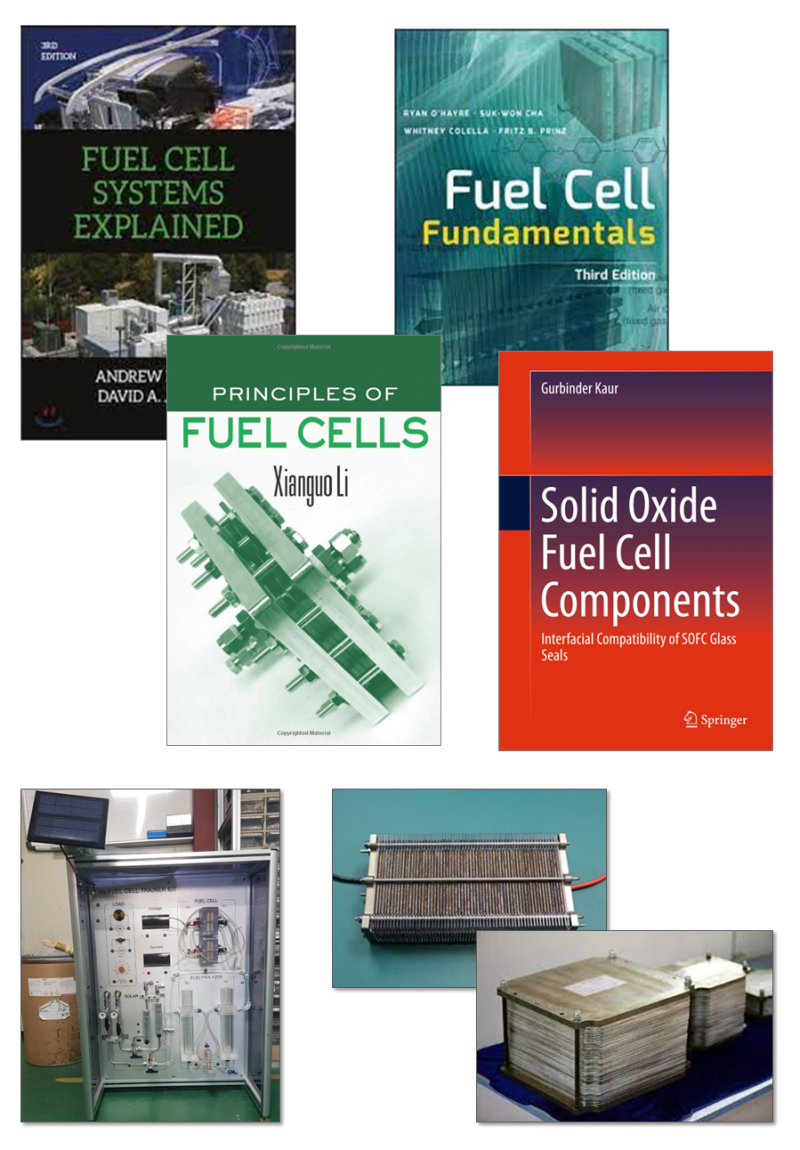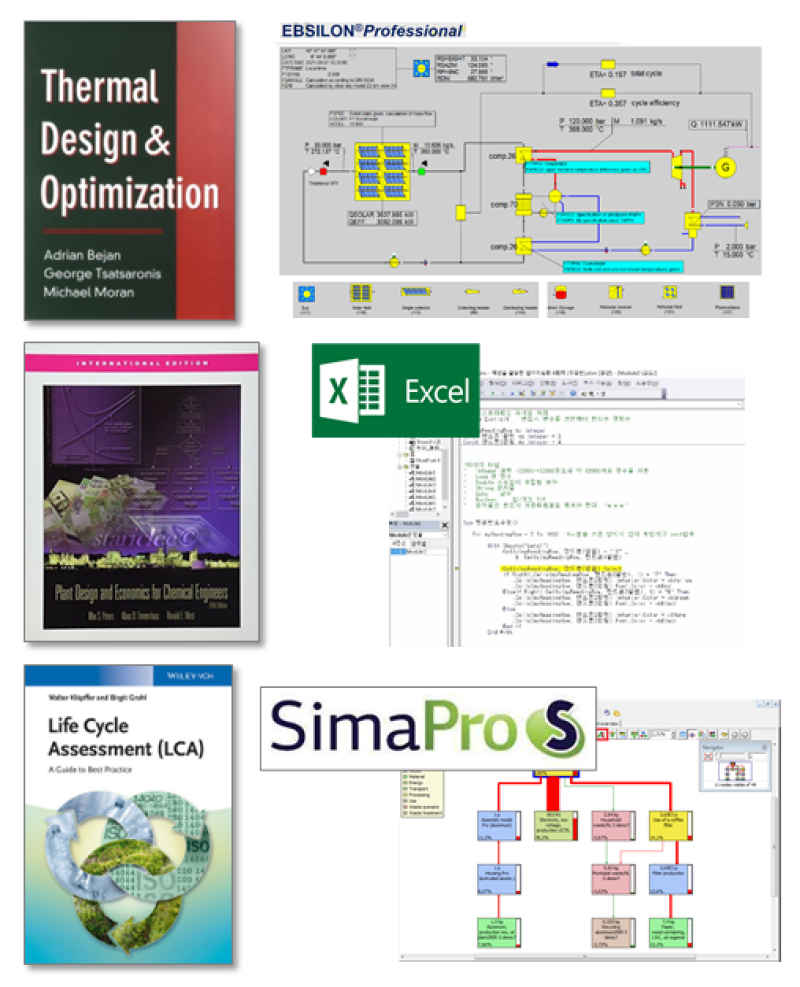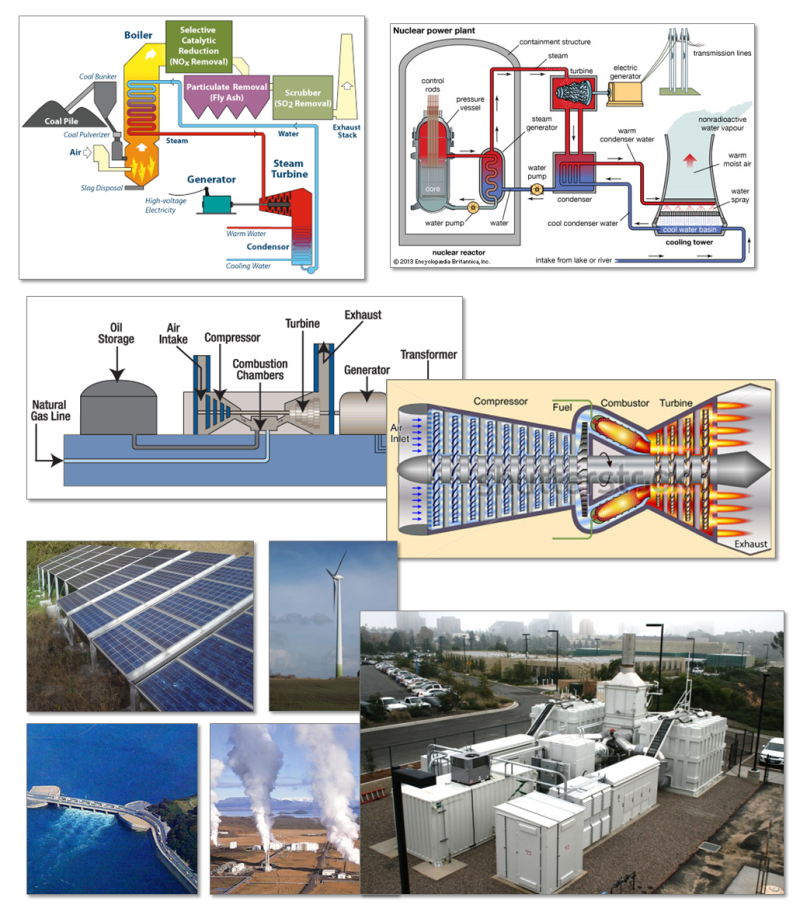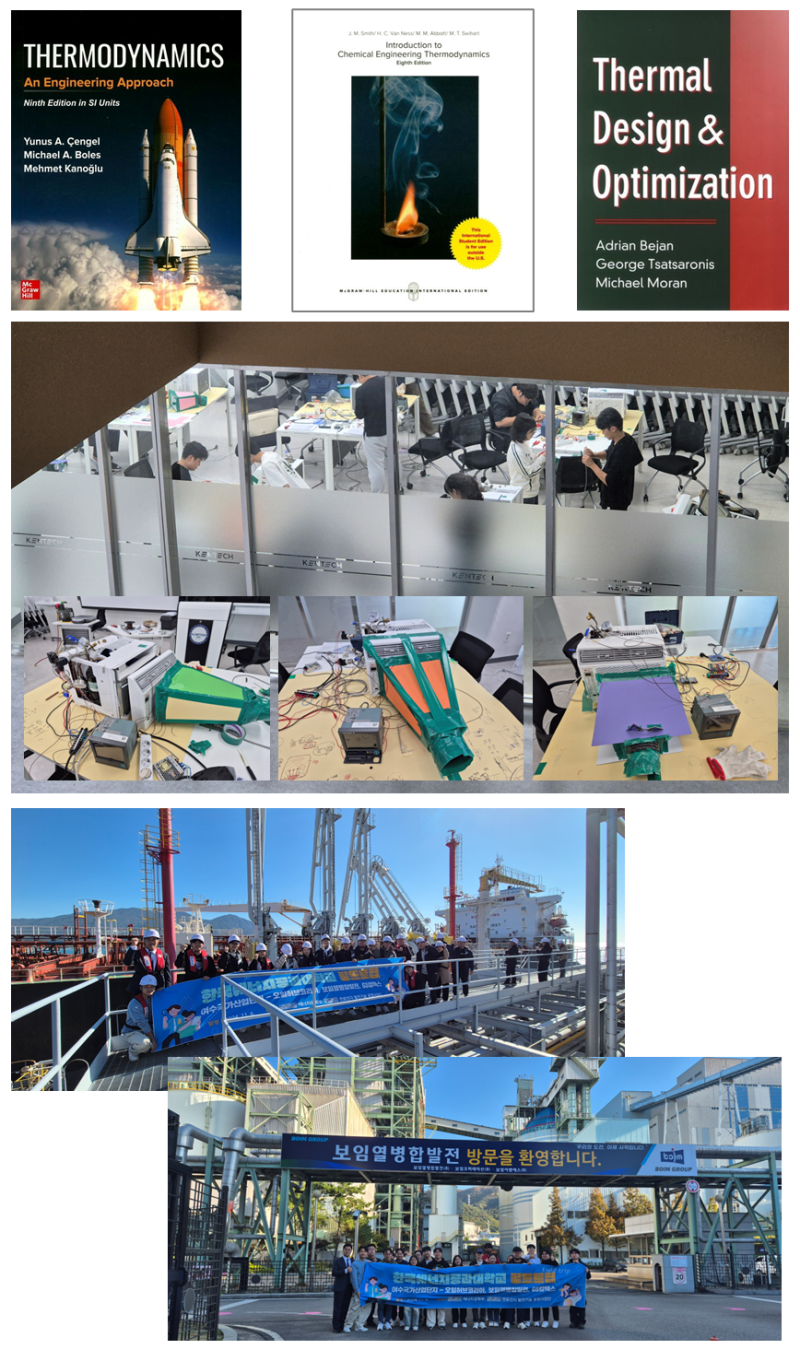-
- Fuel Cell Principles and Applications (EE6306)
-
□ Classification: Graduate Lecture (대학원 강의)
□ Opening: Spring semester
※ Professor Lee and another instructor will take turns teaching this class.
□ Course Description
This lecture is an intermediate course that is designed to offer basic knowledge about fuel cells and fuel cell power generation systems. During this course, students will learn about the (a) technological trend of fuel cells and their applications, (b) basic knowledge of thermodynamics and electrochemistry, (c) materials of fuel cells, (d) features of various fuel cells, (e) system design and process simulation, and (f) BOP (balance of plant) components of fuel cell power generation systems. Various types of fuel cells will be discussed in this course; however, greater focus will be given to solid oxide fuel cell (SOFC) technology. For a better understanding of the structure of the fuel cell stack, students are expected to handle a real fuel cell stack, exploring its internal structure.
□ Contents
- Course Introduction
- Hands-on experiments
- Fuel cell thermodynamics and Reaction kinetics
- Charge and mass transports
- Polymer Electrolyte Fuel Cell (PEMFC), Phosphoric Acid Fuel Cell (PAFC)
- Molten Carbonate Fuel Cell (MCFC), Solid Oxide Fuel Cell (SOFC)
- Fuel supply and Balance of plant (BOP)
- System design
□ Textbook
- Fuel Cell Systems Explained, 3rd Ed, John Wiley & Sons Ltd, 2018
- Fuel Cell Fundamentals, John Wiley & Sons, 2016
- Principles of Fuel Cells, Taylor & Francis, 2006
- Solid Oxide Fuel Cell Components, Springer, 2016
2022.07.21

-
- Advanced Analysis of Energy System (EE6302)
-
□ Classification: Graduate Lecture (대학원 강의)
□ Opening: Fall semester
□ Course Description
This lecture is an advanced course that is designed to help students analyze energy systems in a more rigorous way, from exergy, economic, and environmental perspectives.
This course consists of three parts, (a) an exergy analysis, quantifying thermodynamic inefficiencies, (b) an economic analysis, calculating the levelized cost of the desired product (e.g., the electricity or hydrogen), and (c) life cycle assessment (LCA), quantifying the environmental burden of the analyzed system covering its whole life cycle.
During this course, students may use process-simulation software (e.g., EBSILONProfessional) in calculating exergy and exergetic variables, may use spreadsheet software in developing their own economic analyzer, and may use commercial LCA software in calculating environmental impact.
It is highly encouraged that students bring their own system to be analyzed from their practical field of research.
□ Contents
- Course Introduction
- Concept of exergy
- Exergetic analysis and its application to an energy system
- Basic concept of Engineering Economics
- Cost estimation of an energy system (power plant)
- LCOE calculation for gas turbine power plant
- Introduction to life cycle assessment (LCA)
- The basic concept of LCA
- LCA practice for an energy system
□ Textbook
- Thermal Design and Optimization, John Wiley & Sons, 1996
- Plant Design and Economics for Chemical Engineers, 4th Ed., McGraw Hill, 2003
- Life Cycle Assessment (LCA) – A Guide to Best Practice, Wiley-VCH, 2014
2022.07.21

-
- Power plant engineering: conventional and modern power technologies (EE6309)
-
□ Classification: Graduate Lecture (대학원 강의)□ Opening: Spring semester□ Course DescriptionPower plant engineering is a software-integrated introductory course that is designed to offer a wide range of information on conventional power generation technologies, such as coal-fired power plants, gas-turbine power plants, nuclear power plants, and internal combustion engines, from their fundamental thermodynamics to practical issues of efficiency improvement and better environmental performance.As modern technologies, renewable power generation, power generation with CCUS, fuel cell-based power generation, supercritical CO2 power cycles, and organic Rankine cycles are investigated.During this course, students will use a power plant simulation software, e.g., EBSILONProfessional®, to better understand the feature of each power generation technology and to have a practical capability to analyze power plants.It is highly recommended for a student to pass the Engineering Thermodynamics during undergraduate, a prerequisite.□ Contents- Course Introduction- Gas turbine power plant, simulation of the Brayton cycle- Coal-fired power plant, simulation of the Rankine cycle- Nuclear power plant and a field trip to a nuclear power plant- Internal combustion engines- Supercritical CO2 cycle and organic Rankine cycle- Renewable power generation, simulation of the Solar thermal sCO2 power cycle- Fuel cells and fuel cell-based hybrid power generations- Basics of heat pump□ Textbook- No specific textbook- Handouts will be given.2022.07.21

-
- Hydrogen Energy Visionary Course (VC)
-
□ Classification: Undergraduate Lecture (학부 강의)□ Opening: Spring or Fall semester□ Course Description□ Contents- Course Introduction□ Textbook- No specific textbook- Handouts will be given.2022.07.21
-
- Engineering Thermodynamics (EL2014)
-
□ Classification: Undergraduate Lecture (학부 강의)
□ Opening: Fall Semester (every year)
□ Course Description
The "Engineering Thermodynamics" class is designed to provide a comprehensive foundation in Thermodynamics and practical experience in analyzing various energy systems, primarily focusing on thermodynamic cycles and energy conversion systems. Many conventional energy systems are based on thermodynamic cycles, and the same applies to numerous emerging technologies.
Students will learn the 1st and 2nd Laws of Thermodynamics, starting with basic concepts and terminology introduction. Subsequently, they will investigate various thermodynamic cycles, including the Carnot cycle, Otto cycle, Diesel cycle, Brayton cycle, Rankine cycle, and refrigeration cycle; these cycles will be explored from their working principles to their practical applications. As an advanced application of thermodynamic principles, chemical reactors and nuclear reactors are also investigated, calculating the relevant energy flows.
During the course, students will engage in a hands-on experimental project involving assembling a small-scale air-conditioning unit. This project will entail the analysis of its operation, leveraging the thermodynamic knowledge gained during the class. A field trip will be arranged to allow students to understand thermodynamic knowledge better and connect it to real-world applications.
□ Contents
Through this course, you will:
understand basic concepts and terminologies in engineering thermodynamics
understand the 1st and 2nd laws of thermodynamics and their applications
learn to analyze and design thermodynamic power cycles.
learn to analyze and design chemical and nuclear reactors and their applications
perform a term project to practice the design, analysis, and operation of the above thermodynamic cycles
□ Textbook
Lecture Notes will also be provided in every class.
- Thermodynamics - An Engineering Approach (Cengel YA, McGraw Hill)
- Introduction to Chemical Engineering Thermodynamics (Smith JM, McGraw Hill
- Chemical, Biochemical, and Engineering Thermodynamics (Sandler SI, WILEY)
- Thermal Design & Optimization (Bejan A, JOHN WILEY & SONS, INC)
2022.07.21

-
 HERO Lab
HERO Lab
Researches
 HERO Lab
HERO Lab